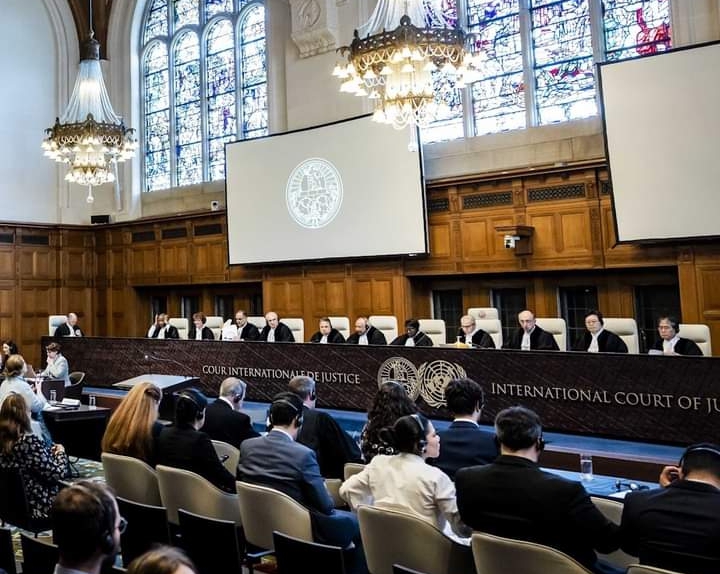The International Court of Justice (ICJ) ruled on Friday that Israel’s settlement policies and exploitation of natural resources in the occupied Palestinian territories contravene international law.
The judgment has sparked a flurry of reactions from both Israeli and Palestinian officials, further intensifying the longstanding conflict in the region.
The court’s 15-judge panel, representing diverse global legal perspectives, unanimously declared that Israel’s transfer of settlers to the West Bank and Jerusalem, along with its maintenance of these settlements, violates Article 49 of the Fourth Geneva Convention. This article explicitly prohibits an occupying power from transferring its civilian population into the territory it occupies.
“The transfer by Israel of settlers to the West Bank and Jerusalem, as well as Israel’s maintenance of their presence, is contrary to Article 49 of the Fourth Geneva Convention,” stated the ICJ in its ruling.
The court also condemned Israel’s policies of annexing territory, imposing permanent control, and building settlements, labeling them as abuses of its status as the occupying power in the West Bank and East Jerusalem.
Israel quickly denounced the ruling, with officials branding it a “decision of lies.” The Israeli government has long maintained that its settlement activities are justified and necessary for the security and historical rights of the Jewish people in the region. However, this ICJ ruling adds significant weight to the mounting international condemnation of these policies.
In contrast, the Palestinian leadership celebrated the decision as a triumph of international justice. Varsen Aghabekian Shahin, Palestinian Minister of State for Foreign Affairs, declared, “This is a great day for Palestine.
The international community has affirmed our right to self-determination and condemned the illegal actions of the Israeli occupation.”
Despite its significance, the ICJ’s ruling is a non-binding advisory opinion, which means it lacks the force to compel Israel to alter its policies.
Nevertheless, it represents a powerful statement from the highest judicial authority of the United Nations and is expected to amplify global pressure on Israel. International reactions have varied, with several countries and human rights organizations expressing support for the ruling and urging Israel to comply with international law.
The timing of the ruling also draws attention away from recent escalations in the region. Since October 7, when Hamas militants launched a surprise attack on Israel, taking approximately 250 hostages and causing the deaths of around 1,200 people, primarily civilians, the conflict has seen a resurgence of violence. While the ICJ’s decision is not directly linked to these events, it underscores the broader context of ongoing tension and violence between Israelis and Palestinians.
The ruling highlights the longstanding issue of Israeli settlements, which many in the international community view as one of the primary obstacles to achieving a two-state solution.
The settlements are seen as a violation of Palestinian rights and a barrier to peace negotiations. The ICJ’s opinion, while advisory, reinforces the legal argument against the settlements and calls on the global community to address these violations more robustly.
However, this ruling by the ICJ has undeniably added a significant chapter to the legal and diplomatic struggle over the Israeli-Palestinian conflict, and its reverberations will likely influence future international policies and actions in the region.




